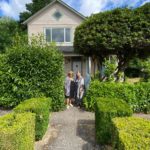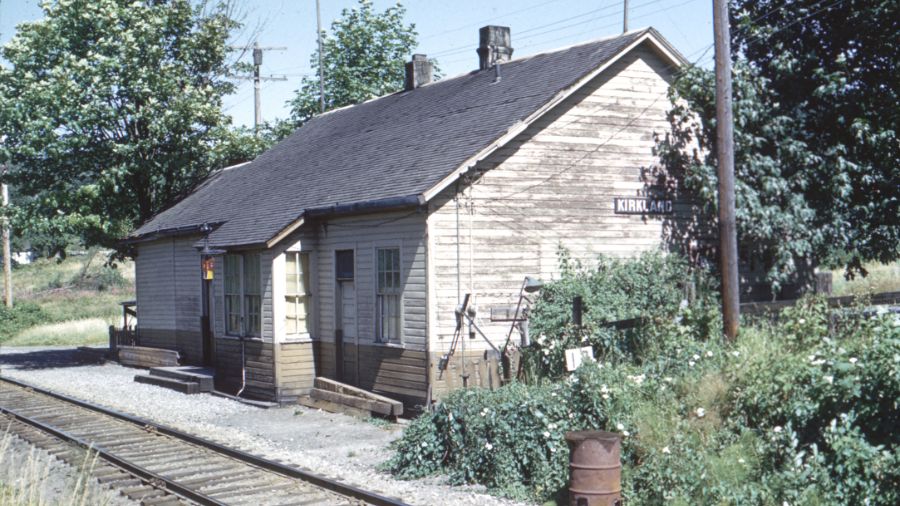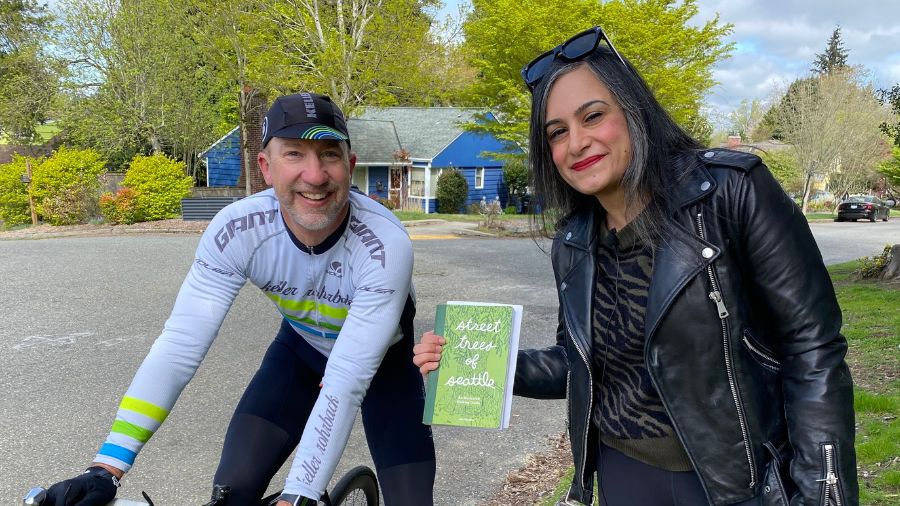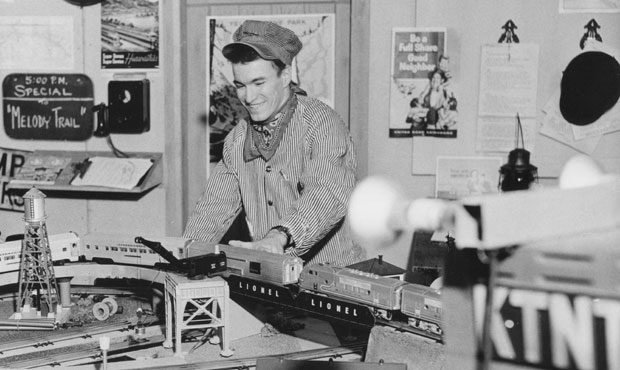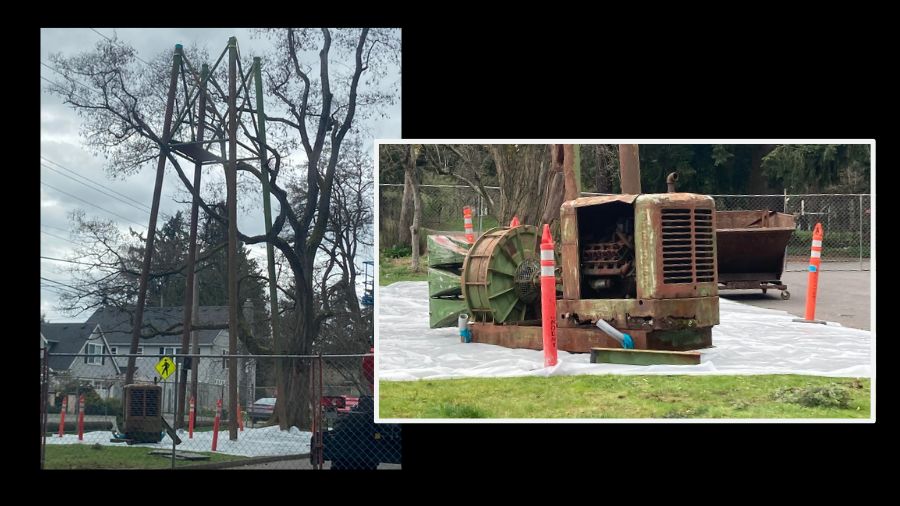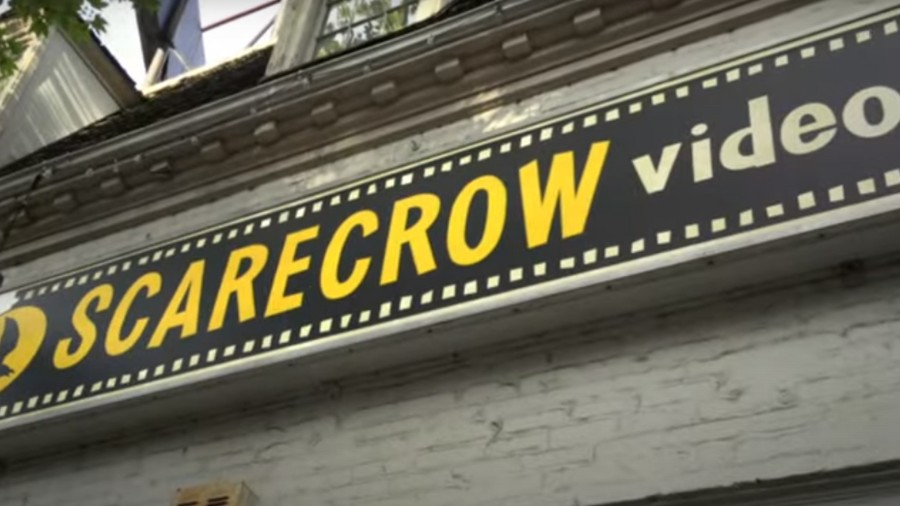Restoring the home – and the legacy – of Nettie Asberry
Aug 10, 2022, 8:34 AM | Updated: 8:43 am

Cynthia Tucker (left) and Wanda Thompson visiting the Nettie Asberry house in Tacoma's Hilltop neighborhood. (Feliks Banel/KIRO Newsradio)
(Feliks Banel/KIRO Newsradio)
A longtime figure in the civic and cultural history of Tacoma – and, really, the entire state – is finally getting the recognition she deserves.
In the Hilltop section of Tacoma, there stands an old Victorian house built in 1887, two years before Washington became a state. The ornate house has seen better days, but it’s got good bones, as they say. It’s also got good history: it was the home for 63 years of Nettie Asberry – a Black woman who died in 1968 at age 103 after a lifetime of civic and artistic achievement.
Nettie Asberry is experiencing something of a rehabilitation lately and is becoming as well-known and lauded, once again, as she has always been in some circles, and as she has always deserved to be in others. Her old house – which once included a music room and which still sits on a sprawling piece of land –is going to need some rehabilitation, too.
“They’re going to lift the house up repair the foundation, and then put the house back down,” said Cynthia Tucker, standing in the yard of the Nettie Asberry house, which until recently was a residential rental. “She used to have concerts because she was a musician, so she had concerts in this yard all the time, quite a bit.”
Tucker is president of the Tacoma City Association of Colored Women’s Club, a community group that adopted that name in 1944 and which is affiliated with a statewide organization and a network of similar groups around the country. With funding from the State of Washington, the non-profit organization bought the Nettie Asberry house on South 13th Street late last year and is beginning the process to restore and convert it into a museum and cultural center. The home was named a Tacoma City Landmark earlier this year.
Nettie Craig was born in Leavenworth, Kansas in 1865. In 1890, she married Albert Jones and the couple moved to the Pacific Northwest. Albert Jones died in the infamous Franklin Mining Disaster in southeast King County in 1894. Nettie remarried in 1895, and her second husband Henry Asberry was a prosperous barber in downtown Tacoma. They moved into the house in Hilltop in 1903 and lived there together for decades. After Henry Asberry died in 1939, Nettie continued to reside there. She gave music lessons there well into the 1950s, and lived in the house until 1966.
It was in 1908 when Nettie Asberry was one of the founders of the Tacoma group when it was initially known as the Clover Leaf Arts Club. Around that same time, Asberry was traveling the state and encouraging other Black women to create civic organizations for community and self-improvement.
Asberry has always been important to the Tacoma City Association of Colored Women’s Clubs. The cultural section of the group is named for her, and an oil painting of Asberry has been hung in a place of honor in the group’s clubhouse, which is also in Hilltop, since not long after Asberry passed away more than 50 years ago.
Cynthia Tucker is well versed in Nettie Asberry’s accomplishments. She’s noticed that others in the community are starting to be as well.
“She also founded the first NAACP in the state of Washington, she also founded a Red Cross [chapter],” Tucker told KIRO Newsradio, reeling off a list of Asberry’s many achievements. “Now, since we purchased that house, we have a lot of people bringing up her information and research, and who she was, what she did. They got college students writing reports, all kinds of things are happening under her name.”
The Tacoma City Association of Colored Women’s Clubs and its predecessor organization have accomplished a lot in the Tacoma area in the past century, but Cynthia Tucker says that restoring the Nettie Asberry house is their biggest project ever.
Wanda Thompson is helping with the project and is a member of the club – just like her mom was before. She says the house is a symbol of Nettie Asberry’s past as something of a renaissance woman – a leader in the Black community, musician and music teacher, artist – and it’s also key to the club’s future.
“She has a lot of history, and the Asberry house is part of her legacy,” Thompson told KIRO Newsradio.
Thompson says it’s the perfect place to carry forward Asberry’s legacy to new generations.
“That would be where we would go and tell the story of what she accomplished for this community, and for young people in the future to have some place to go and look at their history and be proud of it, and not erase it,” Thompson said.
“She was quite a lady,” Thompson continued. “When I got involved with this project and I started reading a little bit about her, I was amazed that she did all this at that time.”
By “at that time,” Wanda Thompson means the reality of more overt sexism, racism and segregation a century ago. The racism and segregation was also present more recently, too. Thompson witnessed them herself, as part of a military family who had been stationed in Europe before moving to Tacoma in the late 1960s.
“When we were looking for homes, I remember as a little girl, my parents were not allowed to look for a home on the North End of Tacoma,” Thompson said, recalling the era of “redlining” when restrictive covenants – along with sometimes rarely spoken but somehow clearly understood rules – dictated where people could rent or purchase homes.
“They had to stay within the central – which we would call Hilltop – area, equivalent to the CD [or Central District] area of Seattle,” Thompson continued. “And in the Hilltop area was not only just African-Americans, but we also lived in a neighborhood that was all Italians. It was a hodgepodge of many cultures, and they were all kind of railroaded into this one area.”
The covenants are gone and Hilltop, with its remarkable views of downtown Tacoma and Commencement Bay, nowadays somewhat better reflects the broader community. Restoration of the Nettie Asberry house presents an opportunity to tell those stories of Tacoma, of the 20th century, and of the life of a remarkable resident of the neighborhood.
Doing so will not be inexpensive, and the Tacoma City Association of Colored Women’s Clubs has to raise a lot of money. In late July, word came of a prestigious grant from the National Trust for Historic Preservation (NTHP) of $150,000 to support hiring a staff person to help manage the house project.
Brent Leggs is executive director of the African American Cultural Heritage Action Fund for the NTHP. He told KIRO Newsradio that the Nettie Asberry house is exactly the kind of transformative project the National Trust wants to support.
“When we learned about the vision of the Colored Women’s Club of Tacoma and that they were centering historic preservation at the core of their organizational mission and that they wanted to take on this difficult task of preserving an opening to the public the home of Nettie Asberry,” Leggs said, “we wanted to seed investment to affirm that vision, and to uplift them for this important work.”
And there’s a lot of important work to do.
Cynthia Tucker and Wanda Thompson say it will take about two years to do what’s necessary, including stabilizing the foundation of the old house, restoring the interior (including the music room), and making the grounds ready to host outdoor concerts once again.
“We are really looking forward to converting it over, and I’m just excited because we’ve worked so hard for the last about six years now, working on trying to get this accomplished,” Cynthia Tucker said. “Now we’ve got people lined up, a lot of volunteers and professionals who want to come in and make this happen, make it a reality, be a part of building this.”
“It’s going to be fabulous and fantastic,” Tucker said.
Based on her history and her list of accomplishments, it seems like there should already be buildings named for Nettie Asberry, and statues dedicated in her honor.
“I agree,” said Wanda Thompson.
Why aren’t there?
“We’re working on it,” she said, chuckling. “That’s next.”
You can hear Feliks every Wednesday and Friday morning on Seattle’s Morning News with Dave Ross and Colleen O’Brien, read more from him here, and subscribe to The Resident Historian Podcast here. If you have a story idea or questions, please email Feliks here.


